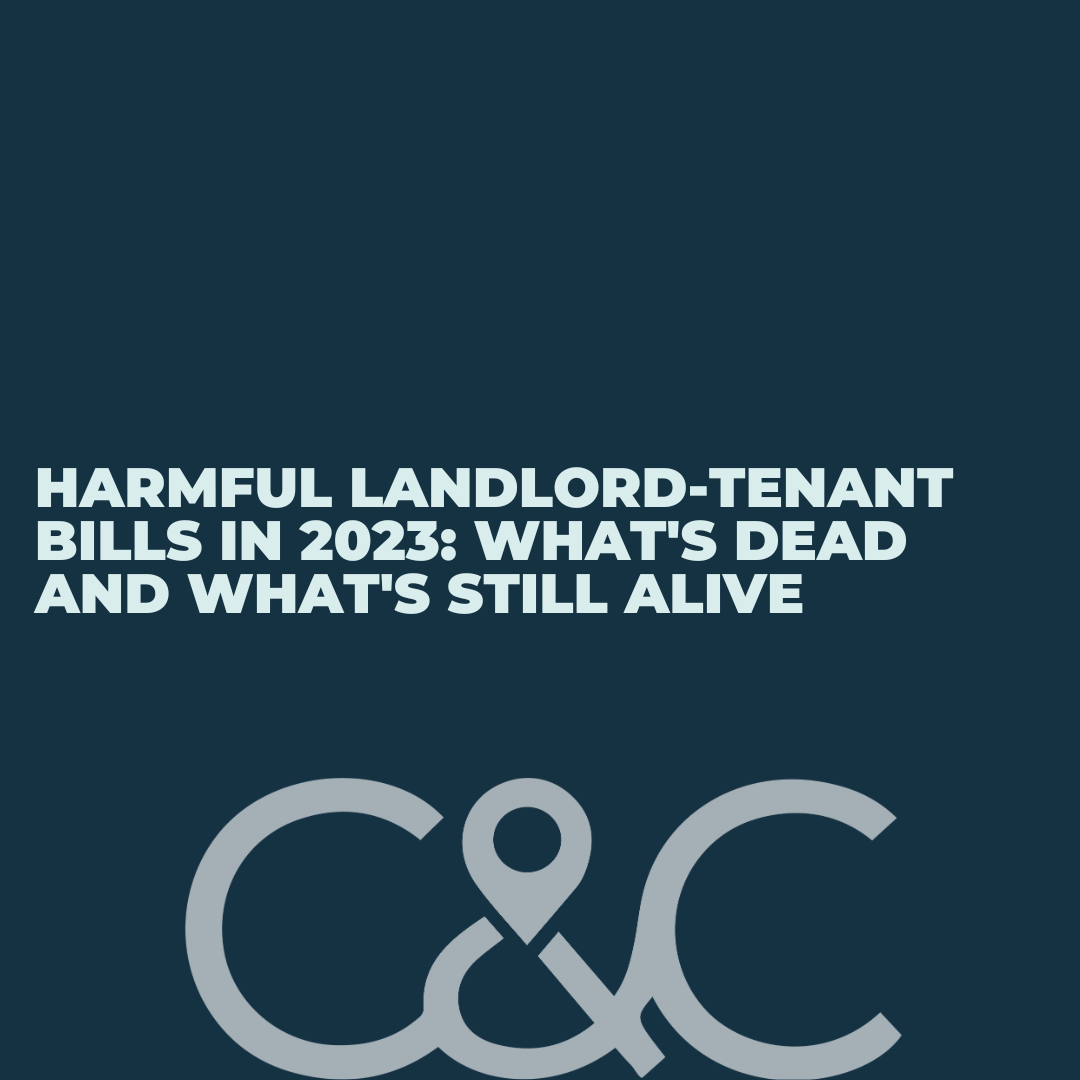Harmful Landlord-Tenant Bills in 2023: What's Dead and What's Still Alive
As the California Legislature resumes its sessions after the summer recess, discussions on crucial bills affecting landlords and tenants have rekindled.

With just over a month left in the legislative year, we're taking a closer look at the bills that the California Apartment Association (CAA) is still advocating against, as well as those that won't be advancing this year.
Bills Still Awaiting Decision
1. Security Deposits – AB 12 (D-Haney – San Francisco):
This bill remains a topic of contention as it aims to cap security deposits at one month's rent, regardless of whether the unit is furnished. Supporters of AB 12 argue that such a measure would enable tenants to access housing they might otherwise struggle to afford due to existing law allowing "high" security deposits. However, CAA opposes this bill, expressing concerns about the potential impact on property owners.
2. Just Cause Eviction – Penalties – SB 567 (D-Durazo – Los Angeles):
SB 567 seeks to amend the state's Tenant Protection Act of 2019 (AB 1482) by modifying just-cause eviction rules and imposing penalties on property owners who fail to comply with the law. Initially, the bill aimed to cap rents at the consumer price index or 5%, whichever is lower, but this provision was removed due to CAA's opposition.
Bills No Longer Moving Forward
Several bills that CAA opposed are no longer progressing in this legislative year:
1. First Right to Purchase – AB 919 (D-Kalra – San Jose):
AB 919 proposed that before selling residential rental property, owners must notify tenants and "qualified organizations." These parties would have the first right to purchase the property, a process lasting over eight months and raising concerns about affordability.
2. Secretly Recording Rental Property Owners – AB 1086 (D-McCarty – Sacramento):
AB 1086 would have allowed fair housing enforcement organizations' investigators to secretly record conversations with property owners or agents without consent.
3. Statewide Database – Termination Notices and Rent Increases – SB 395 (D-Wahab – Fremont):
SB 395 aimed to establish a searchable statewide database where landlords must file termination and rent increase notices within ten days of serving them to tenants.
4. Criminal Background Checks – SB 460 (D-Wahab – Fremont):
SB 460 would have prohibited rental housing providers from inquiring about applicants' criminal history.
5. Rent Control – SB 466 (D-Wahab – Fremont):
Initially, SB 466 would have allowed local governments to impose strict rent control on residential rental properties.
These are just a few of the key bills that CAA has been actively opposing in 2023. For a comprehensive list of bills both supported and opposed by CAA, you can refer to the association's bill chart for the current year. As the legislative year approaches its end, these bills reflect the ongoing discussions and considerations within the California housing landscape. Stay informed, stay engaged, and be part of the conversation.








